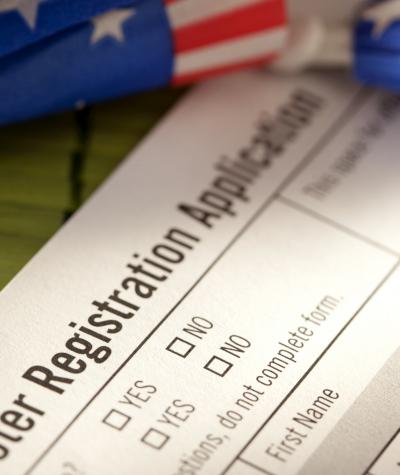I first registered to vote in my home state of Florida as a 17-year-old high school student before the 2008 elections. Although I wasn’t going to be old enough to vote by Election Day that year, I was able to take advantage of Florida’s then-recently enacted preregistration law and submitted my voter registration form while my community’s attention (and my own!) was squarely focused on the 2008 election. Because I was preregistered, I was immediately eligible to vote once I turned 18, and I cast my first ballot in the 2010 midterm elections. Preregistration made it easy for me to develop a voting habit at a young age and helped me remain engaged in our democracy.
Many states use preregistration to help increase levels of voter registration and turnout among young people. Preregistration allows young citizens to register to vote before they turn 18 years old, so that once they reach age 18 they are immediately eligible to vote in the next election. The specific qualifications vary from state-to-state, but as of January 1, 2018, 49 states and D.C. allow at least some form of preregistration (the only exception is North Dakota, which does not require any form of voter registration).
Despite the fact that most states allow young people to preregister, not every state provides its young citizens with accurate information about their ability to do so—which violates the National Voter Registration Act (NVRA), the purpose of which is to ease the voter registration process. Among other things, the NVRA requires states to accurately inform residents of voter eligibility requirements and make sure their voter registration forms are up to date. When states don’t meet those obligations, they fail in their responsibility under the NVRA to enhance participation in our democracy. This is especially important when it comes to policies aimed at promoting registration and voting among young people, because voting habits can be heavily influenced by an individual’s initial experiences navigating the electoral system.
Under the NVRA, states must routinely update their voter registration forms to specify eligibility requirements to register to vote. CLC identified three states—Delaware, Louisiana, and Nevada—whose voter registration forms and/or online voter eligibility guidance inaccurately stated their state’s preregistration policy, failing to accurately inform their young citizens of the actual eligibility requirements for preregistration. The incorrect information on these states’ forms and websites are misleading because they misstate the minimum age at which individuals can preregister to vote.
We have reached out to the election officials in Delaware, Louisiana, and Nevada to encourage them to update their forms and online guidance to accurately state the eligibility requirements for preregistration in their states. We’re looking forward to working with election officials in each of those states to ensure that young people across the country have access to accurate information about their options for preregistration.

